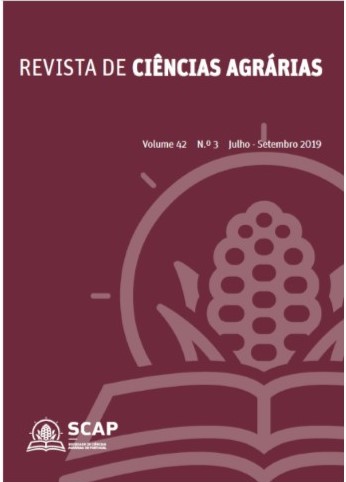Sowing of Lupinus albescens Hook. e Arn. in arenization degraded area
Sowing of L. albescens in sandstone área
DOI:
https://doi.org/10.19084/rca.17567Abstract
Lupinus albescens is an species frequent in the locals under arenization in Rio Grande do Sul (RS), with high rusticity and rapid land cover, showing potentialities for recomposition of degraded areas. The objective was to evaluate the emergence and development of L. albescens, with and without mineral fertilizer application intercropped with Butia lallemantii. Seeds were collected in three populations and submitted to the scarification for 40 seconds. Sowing was done between nine rows (2 x 1 m) of B. lallemantii by applying 0 and 30 g/hole of the mineral fertilizer NPK (5-20-20). The evaluation were: number of plants per hole (NPH), height (cm) and stem diameter (mm), in the periods of 30 and 60 days, as well as the percentage of emergence of plants/m2 (PEP) and the total emergence of plants (TEP) over 240 days, using randomized block design. The results showed a considerable PEP and height at 30 days for the plants in block 2. The 0g/hole dose of the NPK fertilizer provided higher NPH. Therefore, sowing of L. albescens intercropped with B. lallemantii presented higher PEP, NPH without the use of fertilization (30 days) and higher height of the plants among the diameter seedlings of the medium stipe.


